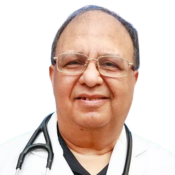Choosing the right radiation oncologist is one of the most crucial decisions in your cancer journey. Radiation therapy plays a central role in treating many cancers, and its success depends not only on technology but also on the expertise, precision, and compassion of the treating doctor and their team.
The right oncologist will not only ensure accurate treatment delivery but also provide emotional support, clear communication, and personalized care tailored to your unique diagnosis. With so many options available, understanding what to look for can make this process easier and more informed.
The outcome of cancer treatment depends greatly on the expertise of your doctor and the quality of the healthcare facility. Selecting the right radiation oncologist in India is a key step in ensuring the best possible care and outcome. Below is a comprehensive checklist of key factors to consider when selecting a radiation oncologist and treatment facility.
1. Experience with Your Specific Cancer Type
Radiation oncology is a highly specialized field, and each doctor often has unique expertise in certain cancers or radiation techniques. Some oncologists may focus on treating brain tumors using CyberKnife or Gamma Knife radiosurgery, while others may specialize in brachytherapy for prostate or gynecologic cancers.
Always ask about the doctor’s experience with your particular cancer type and the number of similar cases treated. Also, verify the doctor’s qualifications — ensure they are board-certified in radiation oncology and have trained at reputed institutions.
5 easy Steps to Get Treated Abroad

Share Case Details

Get Expert Opinion and Hospital Quotes

Get Visa Invitation & Hotel Recommendations

Get Received At Airport and Start Your Treatment

Travel Back and Get Followups Through Us
2. Hospital or Facility Infrastructure
The hospital where your oncologist practices is just as important as the doctor’s experience. Radiation therapy requires advanced equipment and technology, which not every hospital may possess.
Opt for a multispecialty or super-specialty hospital with:
- Modern radiotherapy machines (e.g., LINAC, IMRT, IGRT, SBRT, Proton therapy)
- In-house imaging facilities (CT, MRI, PET-CT) for accurate treatment planning
- Support services like oncology nursing, nutrition, physiotherapy, and pain management
- A multidisciplinary tumor board where oncologists, surgeons, and medical oncologists jointly review and plan cases for optimal outcomes
3. Safety Protocols and Quality Assurance
Modern radiation therapy involves precise doses — accuracy and safety are paramount. Ask whether the facility has regular machine calibration, peer review of treatment plans, and safety certifications from accredited bodies (like NABH, or JCI).
These protocols ensure that treatments are accurate, safe, and effective — reducing risks and improving results.
4. Efficient Scheduling and Coordination
Streamlined processes for appointments, treatment sessions, and follow-up care reduce stress for patients and families.
A well-coordinated oncology team helps minimize waiting times and ensures seamless transitions between consultations, imaging, and therapy sessions.
5. Communication Style and Patient Approach
Cancer treatment involves multiple sessions and close doctor–patient interaction. The oncologist’s ability to communicate clearly, empathetically, and patiently can make a big difference in your comfort and confidence.
Look for a doctor who:
- Explains your diagnosis and treatment plan in simple terms.
- Answer your questions thoroughly.
- Respect your preferences and values in decision-making.
You can gauge this through initial consultations or by reading patient reviews and testimonials.
6. Cost, Insurance, and Financial Support
Radiation therapy can be a long-term and expensive treatment. Ensure the hospital or doctor’s facility is affiliated with your insurance provider.
Ask about:
- Complete treatment cost package
- Insurance coverage and additional costs
- Flexible payment plans or financial counseling
- Government health schemes or charitable support programs
Transparent pricing and early discussions about costs help reduce stress and allow you to focus on healing.
7. Proximity and Ease of Access
Radiation therapy sessions are often daily for several weeks. Choosing a facility that’s close to your home or easily accessible reduces fatigue and improves treatment compliance.
For elderly or immunocompromised patients, shorter travel distances can significantly improve comfort and tolerance.
If you are travelling from a different city or country, try to get affordable accommodations near the hospital to avoid much hassle.
8. Availability and Support Between Sessions
Cancer care extends beyond the therapy sessions themselves. It’s vital that your oncology team is accessible for follow-up queries, side-effect management, or emergencies.
Check whether the doctor offers:
- Follow-up consultations (in-person or virtual)
- A care coordinator
- 24/7 helpline or emergency contact
A responsive support system ensures continuity of care throughout your treatment.
9. Research and Clinical Trials
If your cancer type is rare or advanced, consider oncologists affiliated with research hospitals offering clinical trials or innovative therapies. Access to such advancements can improve outcomes or quality of life.
Participation in clinical research may also offer cutting-edge radiation techniques and next-generation treatment protocols.
10. Treatment Planning and Personalization Approach
Every cancer is unique. The best oncologists emphasize individualized treatment planning using advanced technology.
Ask how the doctor:
- Uses 3D or image-guided planning systems
- Minimizes radiation exposure to healthy tissues
- Integrates radiation with chemotherapy or surgery
A precision-based, patient-centered approach ensures safe and effective treatment delivery.
11. Availability of Supportive Care Services
Cancer care is holistic — beyond radiation, you may need psychological, nutritional, and rehabilitative support.
Look for centers offering:
- Onco-psychology or counseling
- Nutrition and dietary support
- Pain and palliative care
- Physiotherapy and rehabilitation programs
Also ask if the center offers cancer survivorship programs to help manage post-treatment recovery and lifestyle adjustments.
12. Second Opinions and Collaboration
Reputable oncologists welcome second opinions and often collaborate with experts to refine treatment plans.
Seeking a second opinion can bring peace of mind and sometimes open doors to new treatment options or advanced radiation modalities.
13. Treatment Outcomes and Success Rates
While every case is different, you can inquire about the hospital’s or doctor’s success rates — particularly for your cancer type.
Transparent data on tumor control rates, survival outcomes, and long-term follow-up reflect accountability and a commitment to continuous improvement.
14. Ask Key Relevant Questions
Before deciding, consider asking:
- What radiation techniques do you use for my cancer type?
- What technology will be used (e.g., IGRT, SBRT, or SRS)?
- Who is part of my treatment team?
- What side effects should I expect, and how will they be managed?
- What are your quality assurance protocols?
- Are there any clinical trials relevant to my case?
Being proactive helps you make an informed and confident decision.
15. Post-Treatment Follow-Up and Long-Term Care
Cancer treatment doesn’t end with your last session. Regular follow-up visits, imaging, and clinical reviews are crucial to detect any recurrence early.
Ask your oncologist about the structured follow-up plan, including frequency and who coordinates your care.
How Cancer Rounds Helps You Choose the Best Radiation Oncologist?
Navigating through numerous options for cancer care can feel overwhelming, but Cancer Rounds simplifies the process by connecting you directly with India’s top radiation oncologists and accredited hospitals. Our patient-first approach ensures that every recommendation is based on medical relevance, expertise, and transparency.
Here’s how Cancer Rounds supports your decision-making journey:
- Personalized Case Review: Once you share your medical details, our expert team conducts a thorough review to understand your diagnosis, stage, and treatment goals.
- Expert Oncologist Matching: We connect you with radiation oncologists who specialize in treating your specific cancer type and have a proven record of successful outcomes.
- Transparent Cost and Treatment Comparison: You receive detailed estimates and treatment options from multiple hospitals, enabling an informed and budget-conscious decision.
- End-to-End Coordination: From scheduling consultations to assisting with travel, accommodation, and post-treatment follow-up, our dedicated Case Managers ensure seamless support.
- For International and Domestic Patients: Whether you’re based in India or abroad, our multilingual support team helps with medical visas, logistics, and virtual consultations.
With Cancer Rounds, you’re not just choosing a doctor — you’re gaining a trusted partner committed to guiding you through every step of your cancer care journey with clarity, compassion, and confidence.
Conclusion
Choosing a radiation oncology center is a deeply personal and life-impacting decision. By focusing on modern technology, the expertise of a multidisciplinary team, a patient-centric approach, rigorous safety standards, and a commitment to innovation and research, you can confidently navigate your cancer treatment journey in India.
Ultimately, the best radiation oncologist is not just highly qualified, but also empathetic, communicative, and committed to walking with you through every phase of your healing. With knowledge, preparation, and trust, you can make a choice that gives you the best chance at both recovery and peace of mind.
 Chat on WhatsApp
Chat on WhatsApp









